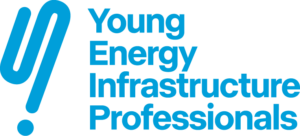

The following is Molly Beckel’s reflection from the Avatar Program’s Lightning Speaker series presented on January 15th, 2021.
Today’s speakers have painted an inspiring vision of the future, a brave new world, where energy is leading the way. The Avatar program is poised to unleash the enthusiasm and fresh ideas of the next generation to make that vision a reality.
We can learn a lot from what resonates in the Avatar Program to improve how we do Energy Advocacy. I will be the first to admit that I am not an expert on Energy Policy – I can’t tell you what to Advocate for, but I can tell you what principles work to inspire real change.
So what makes Avatar successful at inspiring and engaging the next generation? Courage, Honesty, and Respect.
Business as usual is poised to disengage our most important stakeholders instead of inspiring them. At best, they just won’t care, but at worst, they’ll actively become opponents.
Some context for you. One week from today is my protest anniversary. Last January, a group of students disrupted a presentation I was giving about the pipeline industry. Getting protested sucks, but if you stay to listen, there is an opportunity to understand what matters most to your stakeholders.
My protestors had three questions:
1. Is there a future for young people in the energy industry?
2. Are you respecting the rights of Indigenous peoples?
3. Are you causing environmental harm and climate change?
The protest revealed to me that my advocacy work wasn’t courageous enough. I had shied away from these questions because they were too uncomfortable. The next generation demands an energy future that addresses Climate Change, advances Indigenous Reconciliation, enables Innovation, and is Diverse, Equitable, and Inclusive. At Avatar, courage takes center stage in both the educational sessions and in the Action Learning Projects. Because it takes bravery to engage in conversation about these complex challenges and asks that we choose to lead, to embrace change, and initiate engagement when we’re building the energy future.
And, the demographics we must engage with are changing too. We need to be honest about how this impacts our approach. The oldest millennials turn 40 in 2021. Gen Z has entered the workforce. By 2025, 60% of the workforce will be Millennial and Gen Z, growing to 75% by 2030. These individuals are becoming political and business leaders. And across political lines, climate change is a top priority. Only 25% of Millennials trust big businesses (and oil and gas will always be big business). All this puts young people who work in energy in conflict with themselves, their peers, and their employers. We need to be honest about feelings of conflict and the lack of trust and we need to acknowledge how these forces are shaping engagement with Millennials and Gen Z, something that Avatar has done exceptionally well in designing its program.
So, we’ve now come to a place where 1) we are courageously taking on difficult conversions in our vision of the energy future and 2) we’re being honest with ourselves about the expectations and power of the next generation.
Respect is the next principle and it ties all of this together, because only through inclusion, reciprocity, and trust can we empower the next generation to create real change. Respect demands self-reflection: Have I included diverse perspectives, insights, and values in my decision making? How is my bias impacting my strategy? Does this design create reciprocity, or am I taking more than I am giving? Avatar demonstrates how the principle of respect harnesses inclusion to unleash young people’s energy, enthusiasm, and creativity. The result is nothing short of extraordinary and it’s why you’re here today.
We have an opportunity to use the principles that make Avatar successful to innovate in the Energy Advocacy space.
This means having the courage to build a vision of the future that addresses Climate Change, Indigenous Reconciliation, Innovation, and Diversity, Equity and Inclusion even if it’s uncomfortable, scary, and hard.
It means honestly assessing the unique needs, expectations, and power of our most important stakeholders (who are Millennials and Gen Z).
In our work, we can harness inclusion to build trust, reciprocity and most importantly respect to empower the next generation in solving the future’s most difficult challenges.
So here’s my call to action for you: Energy Advocacy has the power to inspire. How will you make sure it is guided by Courage, Honesty, and Respect?